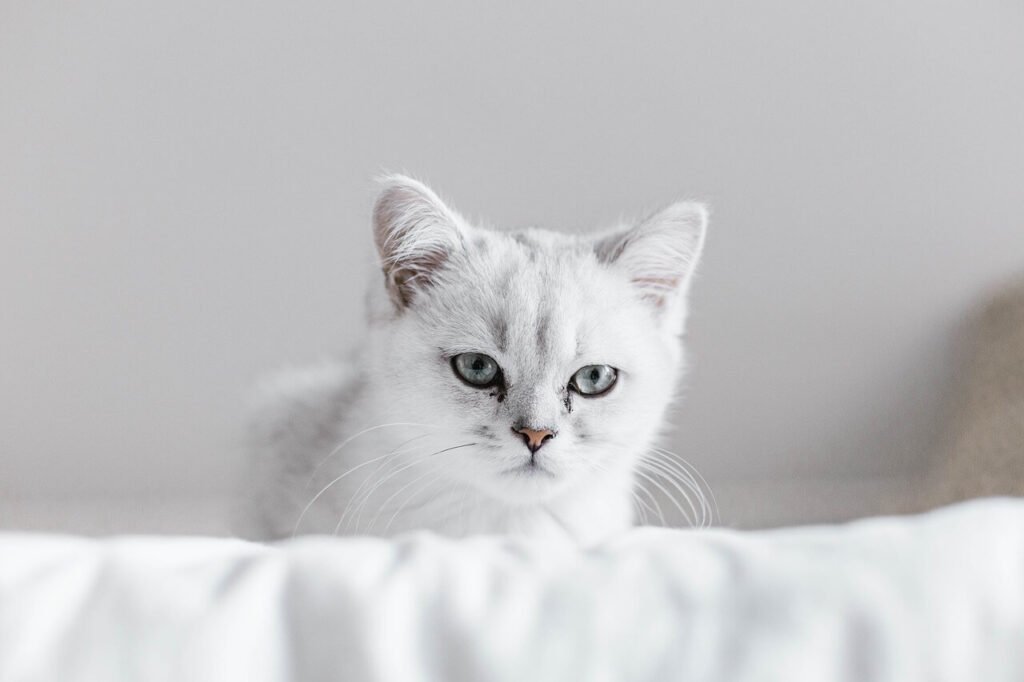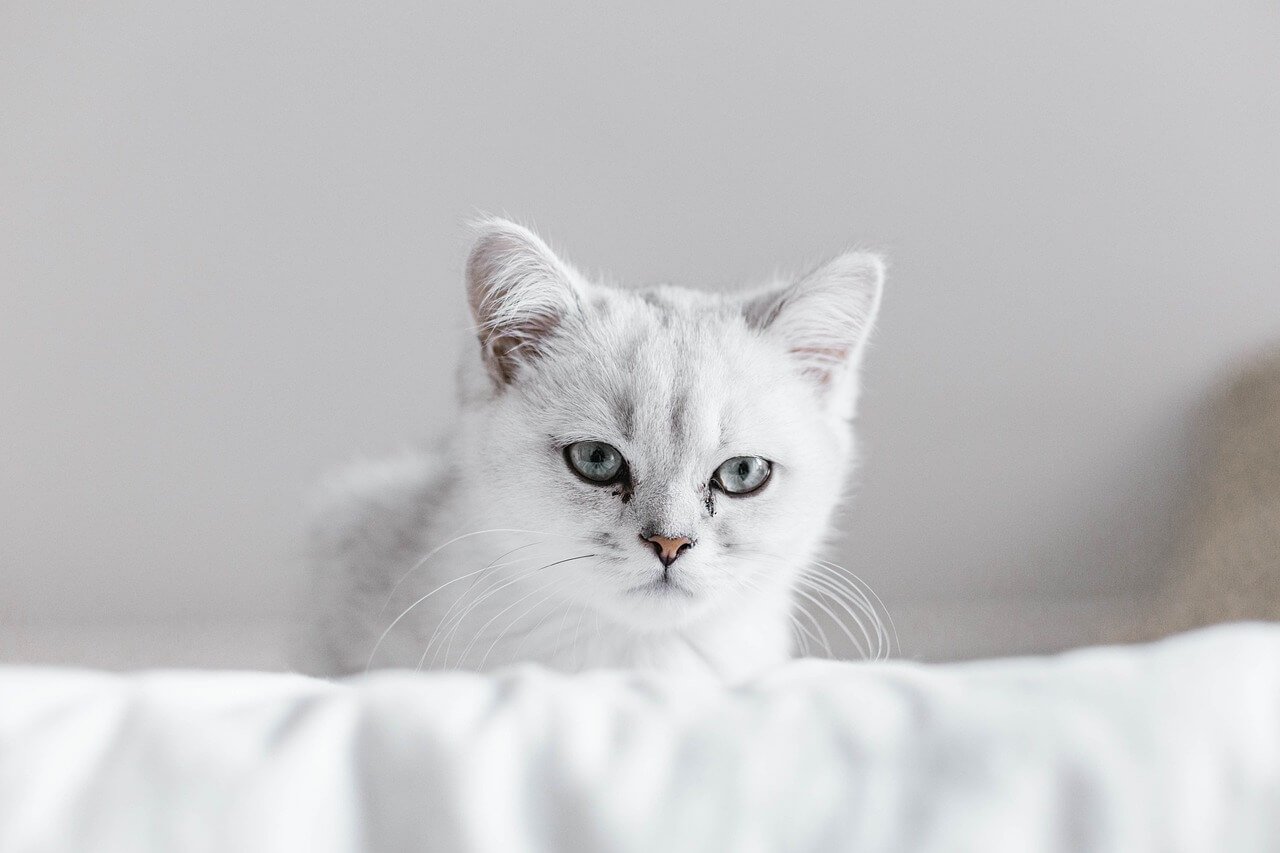Can Cats Eat Honey?
When it comes to sharing human foods with our feline companions, many cat owners find themselves wondering what’s safe and what’s not. One common question is whether cats can eat honey. Known for its sweetness and potential health benefits for humans, honey might seem like a harmless treat to share. However, cats have unique dietary needs and digestive systems that differ significantly from ours. While small amounts of honey may not be toxic, there are important considerations to keep in mind before offering it to your furry friend. Let’s explore the facts about honey and its effects on cats to ensure you make informed decisions about their diet.
Potential Benefits of Honey for Cats
While honey isn’t a natural part of a cat’s diet, it does contain some properties that could potentially benefit your feline friend in moderation. Here’s what you need to know:
Natural Energy Source:
Honey contains natural sugars like glucose and fructose, which can provide a quick energy boost for active cats.Soothes Minor Throat Irritation:
In rare cases, veterinarians may recommend diluted honey to help soothe throat irritation or coughing in cats.Antioxidant Properties:
Honey contains antioxidants that can support overall health by combating free radicals in the body.May Aid Digestion:
Some pet owners believe honey can help with mild digestive issues, though scientific evidence for this is limited.Non-Toxic in Small Amounts:
Unlike certain human foods, honey is not inherently toxic to cats when given sparingly.
While these potential benefits exist, it’s crucial to remember that honey should only be offered in tiny quantities and under specific circumstances. Always consult your vet before introducing any new food to your cat’s diet.
Risks of Feeding Honey to Cats
Despite its perceived benefits, honey poses several risks to cats that shouldn’t be overlooked. Understanding these dangers ensures you prioritize your cat’s well-being.
High Sugar Content:
Honey is extremely high in sugar, which can lead to obesity, diabetes, or dental problems if consumed regularly.Digestive Upset:
Cats lack the necessary enzymes to digest complex sugars, making honey difficult for them to process and potentially causing stomach discomfort.Risk of Allergic Reactions:
Some cats may have allergic reactions to honey, such as itching, swelling, or difficulty breathing.Choking Hazard:
Thick, sticky honey can pose a choking risk, especially for kittens or older cats with swallowing difficulties.Interference with Medications:
Honey may interact with certain medications, particularly those prescribed for chronic conditions. Always check with your vet first.
Given these risks, it’s clear that honey should be approached with caution and never treated as a regular treat for cats.
Check this guide 👉Can Cats Have Strawberries? Best 7 Expert Tips!
Check this guide 👉Can Cats Eat Bananas? Best 7 Expert Tips!
Check this guide 👉Can Cats Have Onion? Best 7 Expert Tips!

Benefits of Honey for Cats | Risks of Honey for Cats |
|---|---|
Provides quick energy | High sugar content can cause obesity |
May soothe throat irritation | Difficult to digest due to enzyme lack |
Contains antioxidants | Can trigger allergic reactions |
Non-toxic in small amounts | Poses a choking hazard |
Supports occasional digestive comfort | May interfere with medications |
How to Safely Offer Honey to Your Cat (If Recommended)
If your veterinarian advises giving honey to your cat for a specific reason, it’s essential to do so safely and responsibly. Follow these guidelines to minimize risks:
Use Extremely Small Quantities:
A drop or two of honey is more than enough—never exceed a teaspoon, even for large cats.Dilute the Honey:
Mix honey with water to reduce its thickness and make it easier for your cat to swallow.Offer Plain Honey Only:
Avoid flavored or processed honey products, as they often contain additives harmful to cats.Monitor for Adverse Reactions:
Watch for signs of digestive upset, allergies, or other negative reactions after offering honey.Avoid Regular Use:
Honey should only be an occasional treat, not a staple in your cat’s diet.
By following these precautions, you can ensure that honey remains a safe option if recommended by your vet.
Healthier Alternatives to Honey for Cats
If you’re looking for ways to spoil your cat without risking their health, consider these healthier alternatives to honey:
Cooked Chicken or Turkey:
Lean meats are excellent sources of protein and make great treats for cats.Pumpkin Puree:
Unsweetened pumpkin puree can aid digestion and provide fiber without added sugars.Cat-Specific Treats:
Commercial cat treats are formulated to meet feline nutritional needs and are a safer option than human foods.Plain Yogurt (in Moderation):
Some cats enjoy yogurt, which contains probiotics that can support gut health—but ensure it’s lactose-free.Fresh Watermelon (Seedless):
Seedless watermelon offers hydration and a refreshing snack, provided it’s served in moderation.
These alternatives cater to your cat’s dietary requirements while avoiding the risks associated with honey.
Signs Your Cat Has Eaten Too Much Honey
If your cat accidentally consumes too much honey, it’s important to recognize the signs early to address any potential issues promptly.
Vomiting or Diarrhea:
Excessive sugar intake can upset your cat’s stomach, leading to vomiting or diarrhea.Lethargy or Weakness:
A sudden spike in blood sugar levels may leave your cat feeling unusually tired or weak.Excessive Thirst or Urination:
High sugar content can cause dehydration, prompting increased thirst and urination.Swelling or Itching:
These symptoms may indicate an allergic reaction requiring immediate attention.Behavioral Changes:
Look for unusual behavior, such as pacing, restlessness, or irritability, which could signal discomfort.
Recognizing these signs allows you to act quickly and seek veterinary care if needed.
Tips for Transitioning to a Balanced Diet
Ensuring your cat receives a balanced diet is key to maintaining their long-term health and happiness. Here are some tips to guide you:
Consult Your Veterinarian:
Work with your vet to create a meal plan tailored to your cat’s age, breed, and activity level.Choose High-Quality Cat Food:
Opt for premium brands that list meat as the primary ingredient and avoid fillers like corn or soy.Limit Human Foods:
Stick to cat-safe fruits and vegetables, and avoid sugary or salty snacks altogether.Provide Fresh Water Daily:
Hydration is critical for digestion and overall health, so always keep clean water available.Monitor Portion Sizes:
Overfeeding can lead to obesity, so measure portions carefully based on your cat’s needs.
A balanced diet sets the foundation for a vibrant, energetic life for your feline companion.
Fun Ways to Reward Your Cat Without Food
Rewarding your cat doesn’t always have to involve food. Here are creative ways to show affection and encouragement:
Interactive Playtime:
Use feather wands, laser pointers, or balls to engage your cat in fun, stimulating activities.Grooming Sessions:
Many cats enjoy gentle brushing, which strengthens your bond while keeping their coat shiny.Positive Reinforcement:
Praise your cat with soft words or clicks from a clicker training tool to reinforce good behavior.New Toys or Activities:
Introduce puzzle feeders or climbing towers to keep your cat mentally and physically stimulated.Quality Time Together:
Simply spending time cuddling or relaxing near your cat can be deeply rewarding for them.
These non-food rewards foster a stronger connection and enrich your cat’s daily life.
Frequently Asked Questions About Cats and Honey
Is honey safe for kittens?
No, kittens have delicate digestive systems and should not consume honey due to the risk of upset or choking.
Can honey cure my cat’s cold?
While honey may help soothe throat irritation, it won’t cure underlying illnesses. Consult your vet for proper treatment.
How much honey can I give my cat?
At most, offer a drop or two diluted with water, and only occasionally. Never exceed this amount.
What should I do if my cat accidentally eats honey?
Monitor your cat closely for signs of digestive distress or allergic reactions, and contact your vet if symptoms arise.
Are there any long-term effects of feeding honey to cats?
Regular consumption of honey can lead to weight gain, diabetes, or dental issues over time.
Prioritizing Your Cat’s Health Over Sweet Treats
While honey might seem like a harmless indulgence, it’s not a suitable or necessary addition to your cat’s diet. Cats thrive on animal-based proteins and fats, and their bodies simply aren’t designed to handle sugary substances like honey. By understanding the risks and exploring healthier alternatives, you can provide your feline companion with treats that truly support their well-being. Always prioritize professional advice from your veterinarian when introducing new foods, ensuring your cat stays happy, healthy, and full of life.
Do Cats Have Taste Buds? Best 7 Expert Tips! – Discover how cats experience flavors and why their taste is so unique.
Do Dogs Have Taste Buds? Best 7 Expert Tips! – Discover how dogs experience taste, their preferences, and what it means for their diet and health.
Can Cats Taste Sweet? Best 7 Expert Tips! – Discover why cats can’t taste sweetness, how it affects their diet, and tips to keep them healthy and happy.
Can Dogs Taste Sweet? Best 7 Expert Tips! – Discover how dogs perceive sweetness, which foods are safe, and tips to manage their sweet cravings responsibly.





